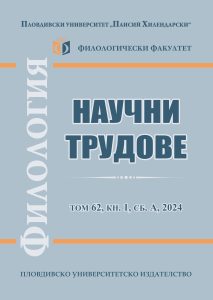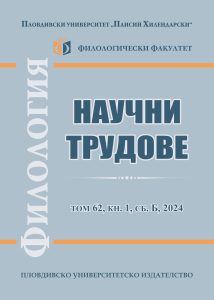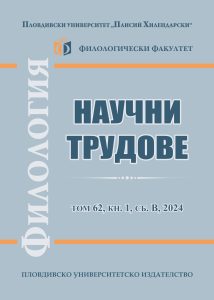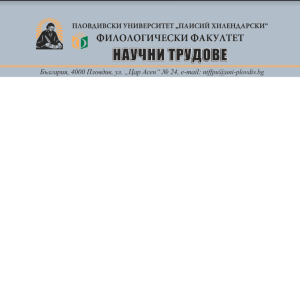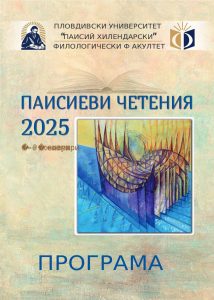VOL. 61, BOOK 1, PART А, 2023, pp. 132 – 145 Full text (Ru)
Author: Tanya Neycheva
Affiliation: Paisii Hilendarski University of Plovdiv
Abstract
The process of replacing the plural ending -ы/-и (-y/-i) with -а́/-я́ (-a/-‘a) in the contemporary Russian standard language is observed in the forms of mas-culine nouns, which end in a consonant in the nominative singular case. Beyond the first declension, the spread of this phenomenon in literate speech is still unacceptable. In colloquial language, however, the range of words affected is much wider, regardless of grammatical gender and partly not depending on the type of declension. The article discusses examples of replacing -ы/-и with -а́/-я́ in the forms of words of the III declension; the purely vernacular (for now) nature of their use is emphasized; additional connotations and emotional and stylistic load of these forms are revealed; an attempt has been made to explain the inevitability of the appearance of certain forms.
Key words: plural nominative, stressed ending -a/-‘á: nochá ‘nights’, pomoshchá ‘help(s)’, docher’á ‘daughters’, mebel’á ‘furniture(s)’


